Risk management will be characterised by embracing ESG, risk culture and smart use of artificial intelligence, according to Airmic’s Future of the Profession 2023 report.
The study, which is hot off the press at this year’s conference, looks at the state of the risk management industry.
It makes for interesting reading, showing that developing a talent pipeline and tackling gender equality must both be key objectives.
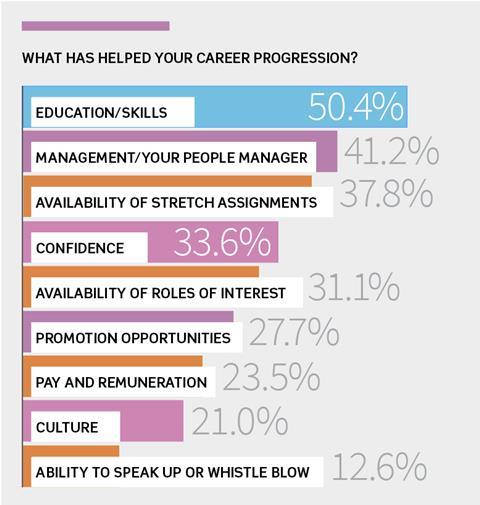
More than half of Airmic’s members come from organisations with a global turnover of £1bn–£10bn or more, while 30% are from organisations with more than 25,000 employees.
There is an even gender split, with 50% reporting being male, 46% female, and 4% ’other’ or ’prefer not to say’. Over three-quarters (77.1%) hold either a BA, MA or doctorate.
Over half (58.1%) of risk managers say they have been in their roles for more than five years.
“Mentorships have been so important to helping me develop my career.”
When asked what has helped with career progression, the most popular responses were education or skills (50.4%), management and/or a people manager (41.2%), and availability of assignments that stretch people beyond their current level of knowledge or skill (33.6%).
Mentorships are also key.
Menha Zola, risk officer at Capital on Tap said: “Mentorships have been so important to helping me develop my career. It’s about being able to talk through practical issues in the job with someone. It’s about having someone to shout out ideas with.”
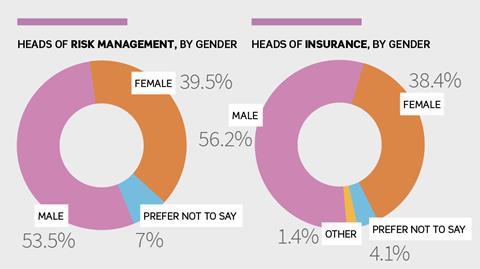
Moving up the ladder
The highest earners in the profession tend to be those who have joint responsibility for managing both risk and insurance.
As an Airmic member explained: “The profession needs to demonstrate a greater value-add to business beyond just at being able to help deliver on insurance claims, and I believe it can.”
“Organisations must build a more inclusive pipeline of talent for these senior management roles”
But there are concerns that women are still being overlooked when it comes to senior positions, something that is still impacting the gender pay gap.
Airmic says: “Organisations must build a more inclusive pipeline of talent for these senior management roles.”
Hot topics for the future
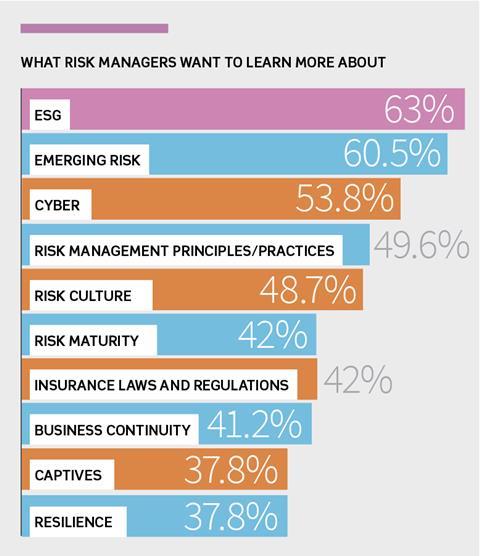
ESG and emerging risk are major hot topics which risk professionals want to learn more about. They recognise how crucial it has become to devote time to scenario analysis and horizon scanning, and to keep up to date with trends in a world characterised by a rapid-fire succession of crises.
Risk culture has also shot up the priority list, in the context of a string of bank failures in early 2023 that have been blamed on bad culture.
However, firms must address the pattern of risk culture becoming a big topic as a consequence of each corporate scandal, and then fading down the list of board priorities until the next corporate collapse.
The role of AI
Millennial and Generation Z members of Airmic are ready to embrace the promise of AI, contrary to fears of the technology taking jobs away or posing an existential threat to humanity.
Hannah Leighfield, insurance manager at Liberty Global, said: “It can take over repetitive tasks such as data entry, while freeing us to perform other roles for our organisations. That’s not a bad thing.”
“We need to invest in the right future, so that risk professionals can realise the promise of AI”
Indeed, AI may help equip risk professionals to bring greater value to their organisations.
As fears of ethical and other risks grow, it will reinforce the need for human decision-making and oversight, a role which risk professionals are well positioned to take up. However, risk professionals must have the right priorities.
The report concludes: “We need to invest in the right future, so that risk professionals can realise the promise of AI and not let its dangers destroy society. This means identifying the right skills that risk professionals need to navigate their organisations through an AI-enabled future.”
Blog: Airmic Conference 2023 from Manchester
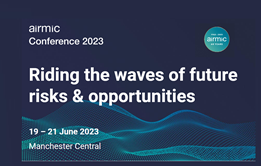
Daily news summary
- 1
- 2
- 3
- 4
- 5
- 6
- 7
- 8
- 9
- 10
 Currently
reading
Currently
reading
Airmic 2023: The future of risk management revealed
- 12





























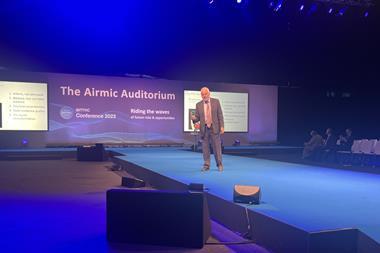













No comments yet